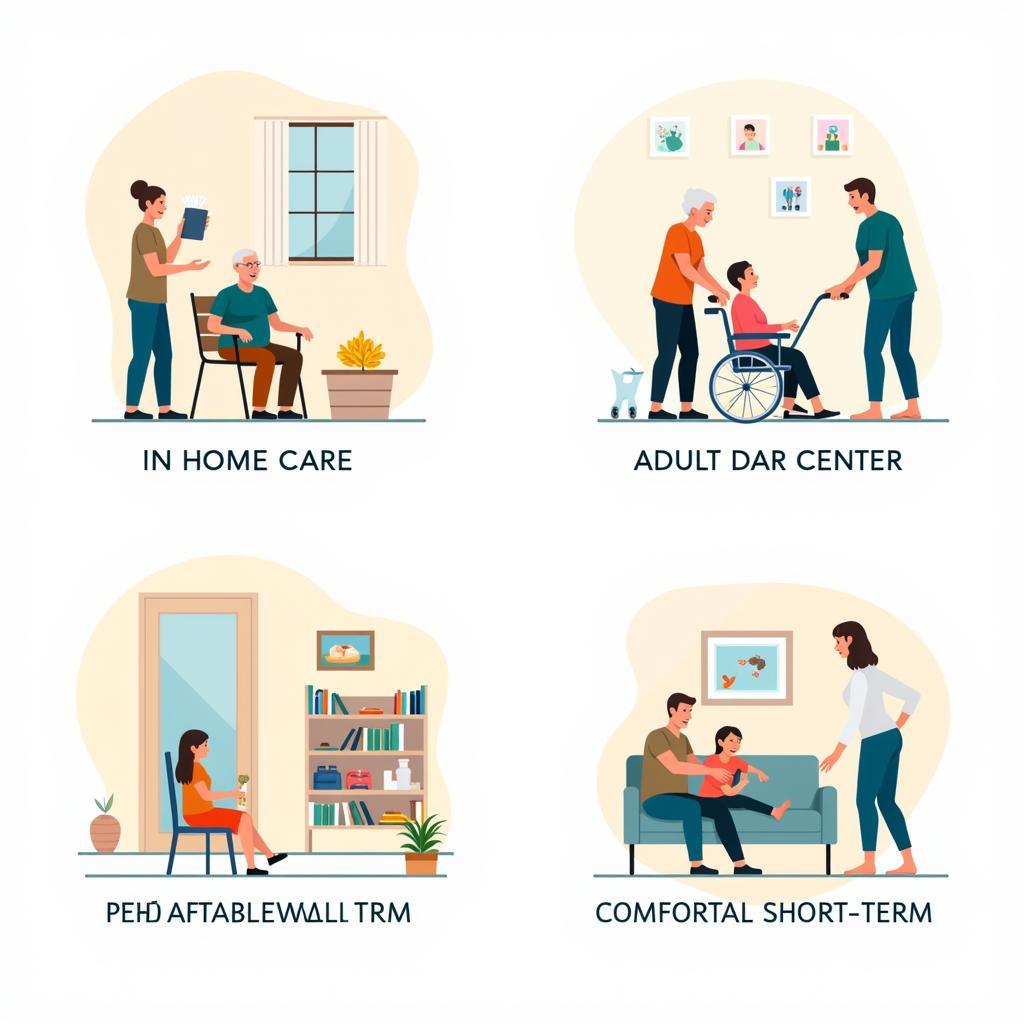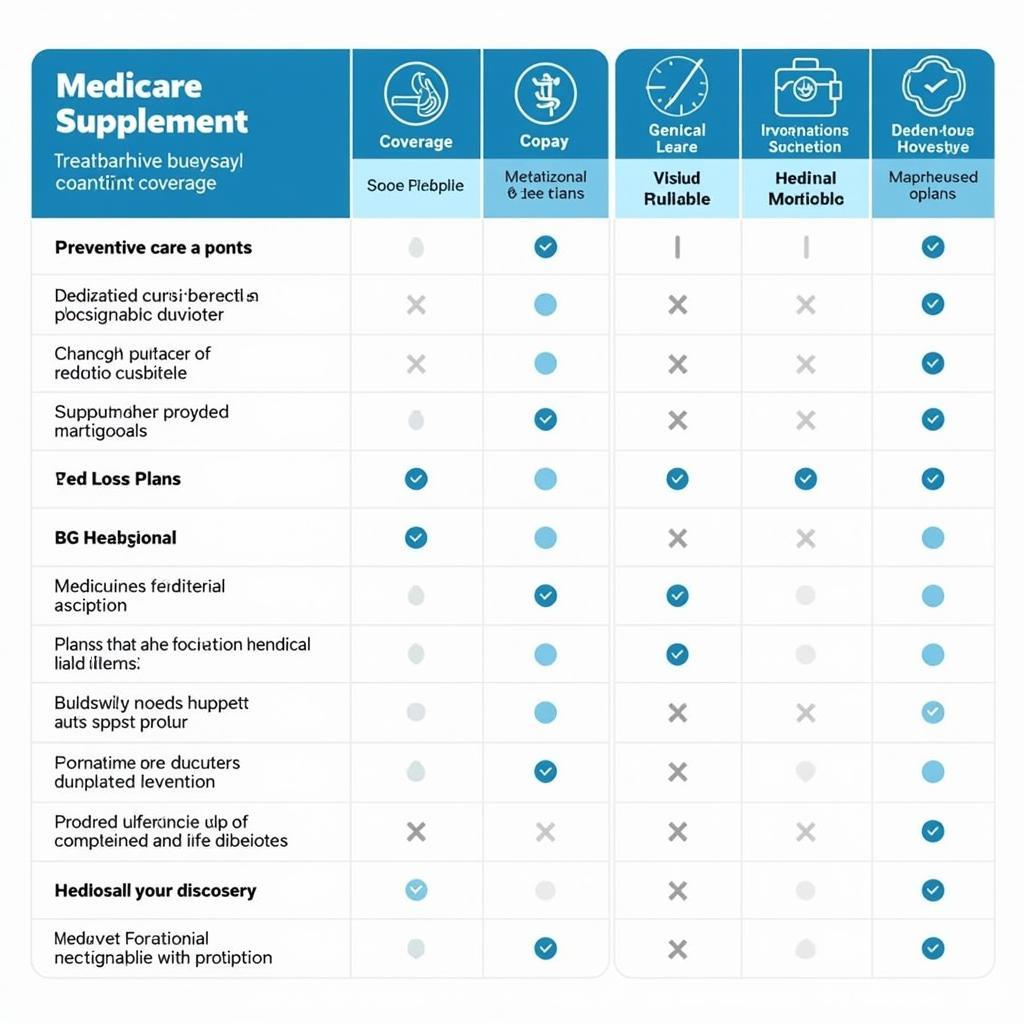What Does Respite Care Services Mean?
Respite care services provide temporary relief for primary caregivers of individuals needing significant support due to age, illness, or disability. These services offer caregivers a much-needed break to recharge, attend to personal needs, or simply take a step back from the demanding responsibilities of caregiving.
Understanding the Essence of Respite Care
Respite care recognizes that caregivers are human and require time for themselves to prevent burnout and maintain their own well-being. It acknowledges the physical, emotional, and mental toll that caregiving can take, and offers a supportive solution to alleviate this burden.
Respite care can take various forms, including:
- In-home care: A trained professional comes to the individual’s home to provide care for a few hours or even overnight.
- Adult day care centers: Individuals spend the day at a facility where they participate in social activities, receive meals, and have access to medical care if needed.
- Short-term residential care: Individuals stay in a facility for a few days or weeks while their caregiver is unavailable.
 Various Respite Care Options
Various Respite Care Options
Benefits of Respite Care for Caregivers
The benefits of respite care for caregivers are numerous and significant:
- Reduced stress and burnout: Taking breaks allows caregivers to de-stress, regain perspective, and approach their caregiving responsibilities with renewed energy.
- Improved physical health: Caregiving can be physically demanding. Respite care offers caregivers time to prioritize their own health needs, such as exercise, doctor’s appointments, or simply getting enough sleep.
- Enhanced emotional well-being: The constant demands of caregiving can impact a caregiver’s emotional health. Respite care provides an opportunity to address personal needs, engage in enjoyable activities, and reconnect with loved ones.
Benefits of Respite Care for Care Recipients
Respite care isn’t just beneficial for caregivers; it also positively impacts those receiving care:
- Socialization and engagement: Respite care settings often provide opportunities for social interaction and engagement in activities that individuals might not have access to at home.
- Stimulation and cognitive support: Many respite care programs offer structured activities designed to stimulate cognitive function and promote mental well-being.
- Maintenance of independence: By offering temporary support, respite care can help individuals maintain their independence for as long as possible.
 A Caregiver Enjoying Respite
A Caregiver Enjoying Respite
Finding Respite Care Services
If you’re a caregiver seeking respite care services, several resources are available:
- Your local Area Agency on Aging: These agencies can connect you with respite care providers in your community.
- Hospitals and healthcare facilities: Many hospitals offer respite care programs or can refer you to other providers.
- Online directories: Websites like Eldercare Locator and the National Respite Network provide comprehensive lists of respite care providers nationwide.
Conclusion
Respite care services offer a vital lifeline for caregivers, providing them with much-needed breaks to recharge and attend to their own well-being. By alleviating the burden of caregiving, even temporarily, respite care enables caregivers to provide the best possible care for their loved ones while safeguarding their own health and well-being. If you’re a caregiver feeling overwhelmed, remember that seeking respite care is a sign of strength, not weakness.
FAQs about Respite Care
1. How much does respite care cost?
The cost of respite care varies depending on the type of service, duration, and location. Some respite care options might be covered by insurance or government programs.
2. Will my loved one be safe in respite care?
Respite care providers are carefully vetted and regulated to ensure the safety and well-being of individuals receiving care.
3. How do I convince my loved one to try respite care?
Introduce the idea gradually and focus on the benefits for both of you. Emphasize that respite care is temporary and allows you to be a better caregiver in the long run.
 An Elderly Person Engaging in Respite Care
An Elderly Person Engaging in Respite Care
4. What if I can’t find respite care in my area?
Contact your local Area Agency on Aging or explore online resources like the National Respite Network for assistance finding services.
5. Can I use respite care regularly?
Yes, respite care can be used on a regular basis to provide caregivers with ongoing support and prevent burnout.
Need help with your car?
For car owners looking for reliable and trustworthy car service information, check out what do u need to service your car.
Need further assistance? Contact us via WhatsApp: +1(641)206-8880, Email: [email protected]. Our customer support team is available 24/7.

